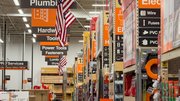News
Analysts say brick-and-mortar stores will live on
March 9, 2011
According to TheStreet.com, despite major retailers such as Blockbuster and Borders filing for bankruptcy, retail experts think the demise of brick-and-mortar stores seems to be exaggerated.
"Way back when the Internet first started up, lots of people were calling me asking what we will do with all the empty retail stores," said Mike Gatti, executive director of the Retail Advertising and Marketing Association, a division of the National Retail Federation.
Although online sales increased last year by 10 percent over 2009, many believe brick-and-mortar are still viable and will continue to be a part of the shopping experience.
Industry analysts think the challenge is figuring out how to incorporate the strengths of a physical presence into the experience.
"Everyone is saying the store is dead, but I say long live the store," said Lisa Gomez, a senior manager who studies the retail section at Deloitte, a consulting firm. "The physical store is going to remain central to the shopping experience, but the walls are coming down. Customers are going to want an updated, unique experience in stores, and retailers will need to figure out what exactly they want and how to give it to them."
Stores such as Staples and JCPenney have introduced Internet-enabled kiosks to help consumers research products, and Disney has incorporated interactive video screens in its stores. Individualizing seems to be the key to meeting evolving consumer demands.
"The 'one size fits all' approach won't work anymore," Gomez said. "Retailers need to determine what will create value for the specific customer." Taking advantage of social networks to measure customer feedback and respond to individuals, along with reducing store size will lead to further customization.
"As stores begin to customize products more, the supply chain will get tighter and quicker, which means they won't need as much inventory or square footage to store that inventory," Gomez said. This year, Wal-Mart and Target will be introducing smaller stores throughout the country.
Analysts also point to exclusivity as a future brick-and-mortar trend. Focusing on exclusivity would mean offering private-label items the customer can’t find anywhere else, or an in-store version of an online item that has more bells and whistles.
"More than ever before, stores, and the products they sell, must offer consumers a status story," said Henry Mason, head of research and analysis at Trendwatching.com
 ChatGPT
ChatGPT Grok
Grok Perplexity
Perplexity Claude
Claude




